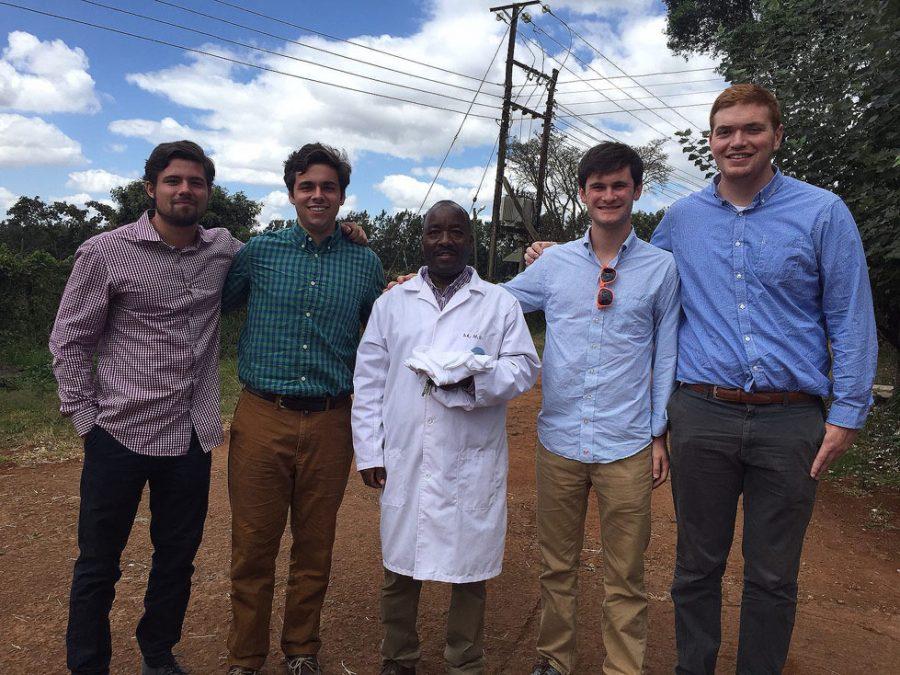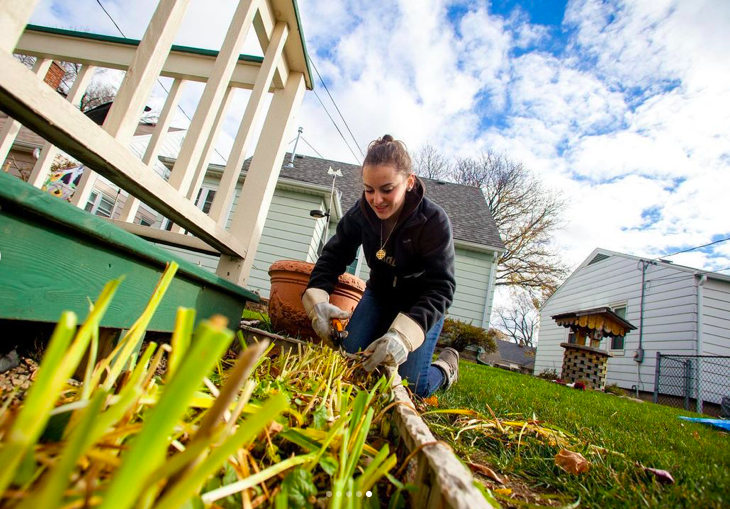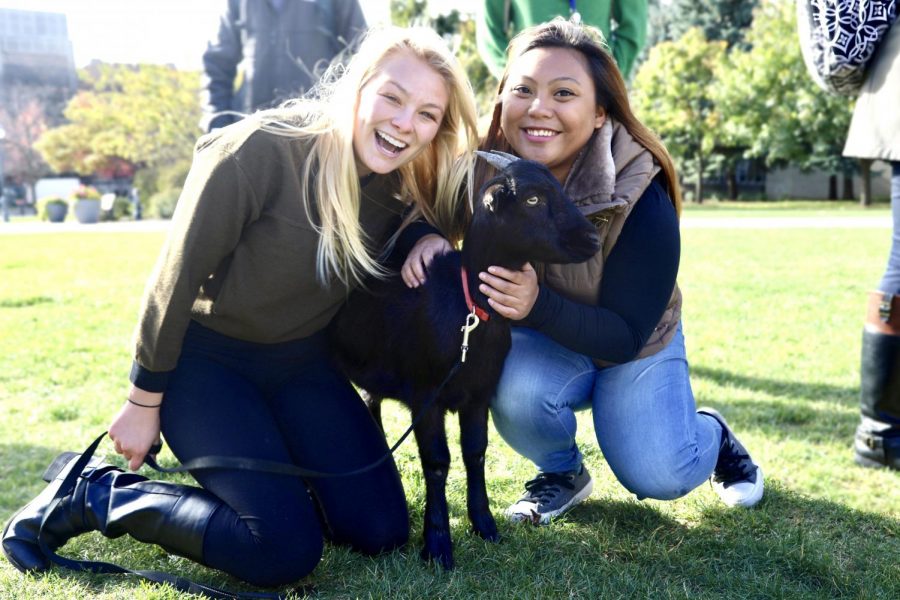Most students perform community service with local organizations. Four students, however, took a journey over 7,000 miles to serve others.
Paul McPeake, Ryan Loftus, Abe Stamper and Taylor Smith are the leaders of Goat Hope Marquette, an organization that provides goats to needy families in Embu, Kenya.
McPeake, a senior in the College of Arts & Sciences and organization president, said goats are preferred because they cost less to care for and require less land than cows. Goat milk is highly nutritious and boosts immunity, which McPeake said is good for sick people in the community.
In addition, women typically aren’t allowed to own cows. Stamper, a senior in the College of Engineering, said owning a goat is a “huge sense of pride” for women.
McPeake’s mother and Marquette alumna Tracy Masella, and Beatrice Wainaina, a Kenyan immigrant, first started the initiative from their homes in Connecticut.
“It started originally as medical relief alliance sending medical equipment to certain villages in Kenya,” McPeake said. “In 2009, they switched to Goat Hope Initiative, and they started sending goats to different villages in Africa.”
McPeake and Smith, a senior in the College of Business Administration, later introduced the organization to Marquette students and recruited the rest of the group as members.
“Taylor and I brought Goat Hope to Marquette March 2016 in order to help the program through Marquette’s resources, students and the various connections that Marquette has,” McPeake said.
The group’s latest project was in August: a twelve-day trip to Kenya where they distributed goats, met locals in the community and laid plans for future projects. They also went on a four-day safari.
“While we were there we met with members of the community to learn what issues they deal with on a daily basis and see what we can do for the future,” Stamper, the organization’s treasurer, said. “We also looked at plans for a new cooperative dairy that we want to build, and set things up for future trips,” he added.
The men said their experience was eye-opening and not what they expected.
McPeake said the villagers were “extremely happy and always smiling and laughing. When we first got there, we danced for like 20 minutes straight. They were singing their songs and we were attempting to join in.”
“Walking up and being greeted by 50 women, all dancing, shouting and cheering for us to be there was eye-opening,” Stamper added. “It was amazing how happy they were just to be part of the initiative.”
During the trip they also met with a local official and executives from the Naivas Supermarket chain to propose their plan to build a cooperative dairy in the community.
“We made plans for that and made a kind of loose partnership with the company,” Smith, the vice president of the organization, said. “After that, we presented our idea to 150 members of the community, who were all really excited about it.”
Stamper said the local government is contributing $20,000 to the project, which will hopefully be built within the next three years.
The group, which recently applied for the Strategic Innovation Fund and the Peacemaking Fellowship, is currently focused on raising funds and recruiting new members for the next trip to Kenya in August 2017.
“Our goals for the future are focused on trying to fundraise for the cooperative dairy, and also helping with the day-to-day lives of the people by providing funding for goat feed and shuttle services to clinics,” Smith said. “We’re looking for kids to join as soon as possible to be able to go to Africa next summer.”
Loftus, a senior in the College of Business Administration, said Goat Hope is a unique opportunity for students looking to participate in service.
“A lot of kids come to a Jesuit school like Marquette wanting to do something to help the community but don’t know exactly what, and this is something for the greater good that they can do,” he said. “It’s also a great way to experience a different culture.”






